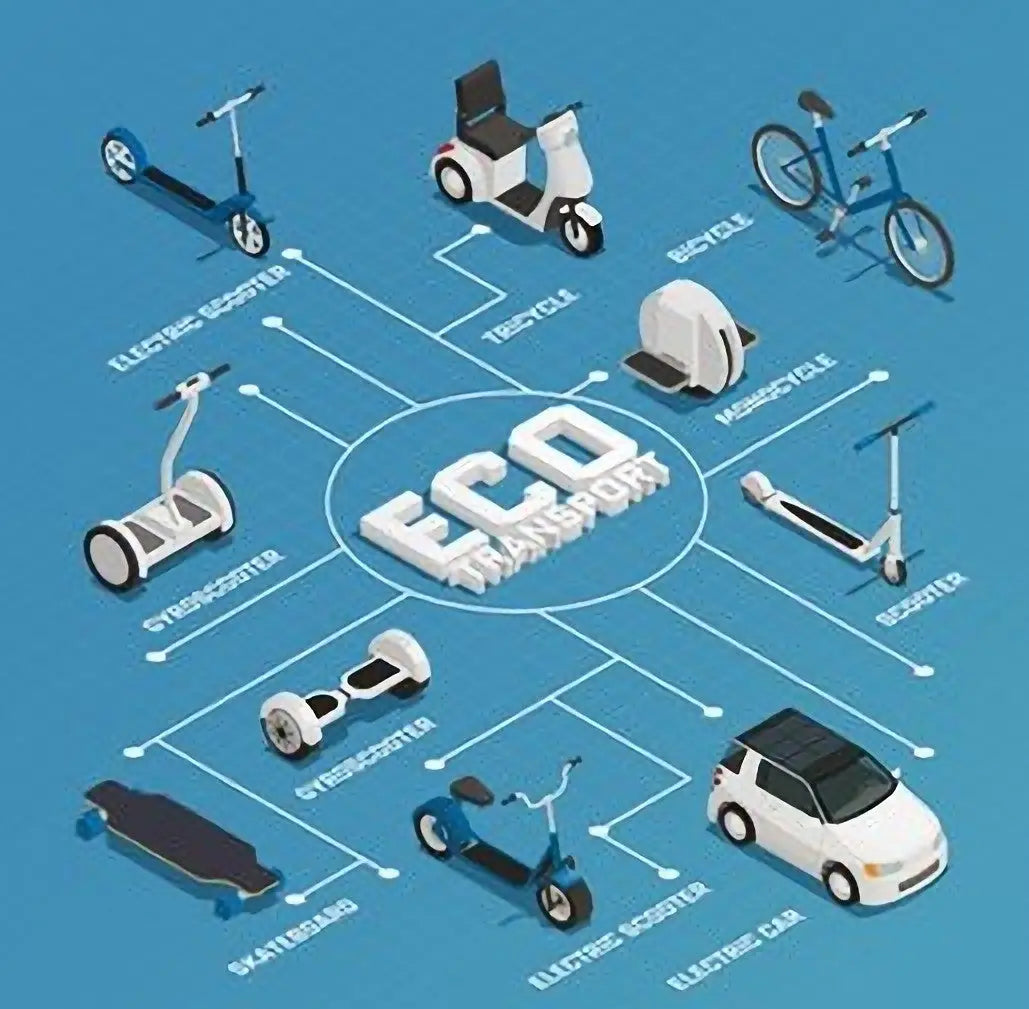Mon - Sat 09:00 -17:30
Mon - Sat 09:00 -17:30

Personal electric vehicles are solving last mile problems and replacing car trips as major cities move away from car-centric infrastructure. Increasingly, commuters are realizing how much faster and easier it is to get to work on an electric scooter or e-bike than it is to sit through dreaded rush hour traffic or live at the mercy of unreliable public transportation systems.
When it comes to which personal electric vehicle is best, the choice between an e-bike or e-scooter might already be made for you by some critical factors, including portability and storage capacity. Can you fit a full-sized electric bike in your tiny studio apartment? Carry one up the stairs in your building with no elevator? If not, you’re probably leaning toward a scooter or a maybe a small, folding electric bike.
But there are many other considerations, especially if you’re just figuring out how to transition from more traditional modes of getting around.
Some other points of comparison include the need to access other modes of transportation easily or to carry larger loads; the distances you typically have to travel; or a desire to get some optional exercise along the way. Both energy-efficient options are excellent choices in their own right, but these are very different kinds of vehicles, as we’ll see.
If you asked 3-4 people to name the ideal personal electric vehicle you might get 3-4 different answers. Bodies and needs vary. Some people might find riding an electric bike challenging or impossible. For others, standing and balancing on a scooter or skateboard can be too difficult. For a number of riders, an electric bike may simply be the most comfortable option.
Most electric bikes have large frames and tires to accommodate the added weight of the battery and motor. Electric mountain and hybrid bikes also include full or partial suspension systems, which are as useful on bumpy, potholed city streets as they are on the trail. If comfort is your main concern, you might consider the huge range of electric bikes, which do come in lighter, folding options to better meet a need for portability.
That’s not, however, to say that electric scooters don’t offer a comfortable ride—they do. Many high-performance models even feature large pneumatic tires and suspension systems, though at the cost of a larger vehicle that may not be easy to fold or carry and can weigh as much as an e-bike. For most people, these heavy add-ons defeat one of the primary reasons for owning a scooter—convenience.
Most lightweight, durable scooters like Mankeel MK090 which comes light weight builtin dual suspension —ride smoothly and comfortably over level pavement and can easily be folded and stowed in a closet or carried onto public transportation. Electric bikes, on the other hand, can weigh anywhere from 22-50 kg.
It’s true that the majority of electric bikes will outperform most lightweight e-scooters in top speeds, though there are, of course, exceptions. In order to keep weight down, scooter manufacturers equip their vehicles with smaller batteries and motors. Most electric scooters tend to top out at speeds of 22 mph, where electric bikes may reach speeds of up to 30 mph or more. But if you’re riding in heavy traffic or on crowded city streets, speed may not be a foremost concern.
E-scooters are sleek and nimble and can easily maneuver around cars and other vehicles that slow cyclists down.
It’s also true that electric bikes will generally have much longer ranges and will therefore work best for longer commutes and adventures, though their larger batteries can take more time to charge. Many people who choose to purchase an electric bike live in low-density areas with lots of roads and trails and longer distances to cover. Scooter buyers, on the other hand, might tend to live in large cities where lower speeds and ranges are worthy trade offs for convenience, portability, and maneuverability.
Cost is certainly not the least consideration when deciding between an electric bike and electric scooter. If you need to haul things, spending the extra money on an electric bike may be the preferable (or only) option. That said, not all e-bikes cost more than high-end electric scooters (just as not all e-bikes are as harder to carry and store). The amount of money you’re willing and able to invest in a personal electric vehicle will greatly depend on your specific budget and transportation needs.
As we’ve noted, the choice between an electric bike and an electric scooter (if you have to choose!) can depend on a number of variables that differ widely between individual riders. No personal electric vehicle is designed to meet every possible transportation need. When it comes, however, to cost, convenience, and ease of use, electric scooters might just be the best option for the majority of urban commuters and riders-about-town.
If you’ve enjoyed this blog, why not join the AOVOFIX Club to receive more news, insights and exclusive offers